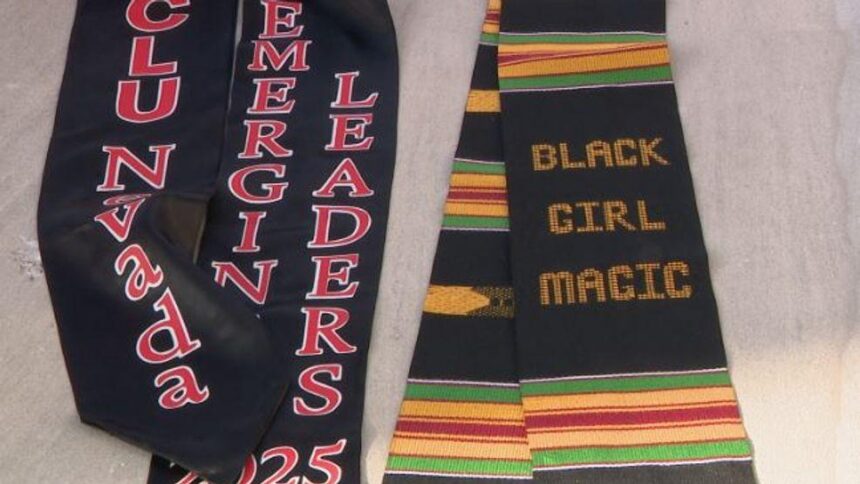Federal Court Overturns Clark County School District’s Ban on Graduation Stoles
Landmark Court Decision Upholds Student Free Speech Rights
A recent federal court ruling has sided with the American Civil Liberties Union (ACLU) in its challenge against the Clark County School District’s (CCSD) policy that prohibited graduation stoles bearing symbols or messages. The judge determined that the district’s blanket ban was excessively broad and infringed upon students’ constitutional rights under the First Amendment. This verdict represents a major triumph for student expression and could influence how schools nationwide regulate symbolic attire during commencement ceremonies.
Key Reasons Behind the Court’s Rejection of the Ban
The court’s decision was grounded in several critical considerations:
- Constitutional Safeguards: Graduation stoles are a recognized form of symbolic speech, protected by the First Amendment.
- Cultural and Personal Identity: The court acknowledged that stoles often signify crucial cultural heritage and individual accomplishments.
- Equity Concerns: The policy disproportionately impacted minority students, raising issues of discriminatory enforcement.
- Mandate for Policy Revision: CCSD was instructed to revise its regulations to better respect student expression and inclusivity.
| Issue | CCSD’s Stance | Judicial Finding |
|---|---|---|
| Graduation Stole Restrictions | Prohibited all unofficial stoles | Ban violates free speech protections |
| Symbolic Expression | Limited symbolic attire | Recognized as constitutionally protected speech |
| Inclusivity Enforcement | Applied inconsistently | Must ensure equal representation |
Broader Legal Consequences for School Dress Code Policies
This ruling establishes a significant legal precedent that challenges the authority of school districts to impose sweeping restrictions on student expression during graduation events. Educational institutions are now compelled to reconsider policies that broadly ban attire or symbols related to cultural,political,or social identities,in this very way prohibitions may violate constitutional free speech rights.
School administrators should take heed of the following recommendations when revising dress code policies:
- Avoid blanket prohibitions on personal or political expressions that do not cause disruption.
- Seek legal counsel to ensure compliance with First Amendment jurisprudence.
- Involve community stakeholders—including students and parents—in policy progress to promote transparency and acceptance.
| Policy Element | Legal Consideration |
|---|---|
| Overarching Attire Bans | Risk of infringing on free speech rights |
| Clear Symbol Guidelines | Balances expression with event decorum |
| Inclusive Policy Formation | Minimizes disputes and legal exposure |
Enhancing Student Expression and Upholding Civil Liberties
The court’s ruling reinforces the vital principle that students retain their right to free expression, particularly during milestone events like graduations. By invalidating the CCSD’s broad ban on stoles featuring symbolic designs, the decision affirms that schools must carefully balance administrative interests with constitutional freedoms.
Notable civil rights impacts include:
- Protection of non-disruptive symbolic speech within educational settings
- Recognition of the importance of cultural and personal identity in student expression
- Encouragement for schools to adopt inclusive and equitable policies
- Judicial reinforcement of limits on overly broad administrative regulations
| Right | Effect of Ruling |
|---|---|
| Freedom of Speech | Strengthened protection for student voices |
| Equal Treatment | Limits discriminatory policy enforcement |
| Due Process | Requires clear, justified policy measures |
Guidance for CCSD to Foster Inclusive Graduation Traditions
In response to the ruling, CCSD is encouraged to develop graduation policies that honor student rights while promoting inclusivity. This includes crafting transparent, non-discriminatory guidelines that permit personalization of regalia reflecting cultural, political, or personal identities.
Engaging a broad range of voices—including students, parents, educators, and civil rights advocates—can definitely help the district proactively address concerns and avoid future litigation.
Recommended actions include:
- Permitting approved attire and accessories that celebrate diverse identities and achievements
- Providing diversity and inclusion training for staff managing graduation ceremonies
- Establishing an advisory panel with representatives from the student body, faculty, and community organizations
- Communicating policy updates clearly through multiple platforms to ensure widespread understanding
| Initiative | Expected Benefit |
|---|---|
| Inclusive Graduation Apparel Policy | Empowers students to express their identities |
| Staff Training on Diversity | Reduces conflicts and fosters respect |
| Stakeholder Advisory Committee | Enhances community engagement and trust |
Conclusion: A Milestone for Student Rights and Educational Policy
This court ruling represents a crucial affirmation of students’ First Amendment rights, emphasizing that educational institutions cannot enforce sweeping bans on expressive graduation attire without violating constitutional protections. As CCSD revises its policies in light of this decision, the case sets a vital precedent for how schools across the country approach student expression during ceremonial events.Civil rights groups and school districts alike will be closely monitoring the ongoing developments stemming from this landmark judgment.









